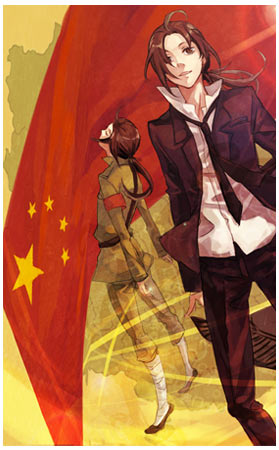When you’re a white guy studying Japanese in university, a funny thing happens: as you progress in your studies there are fewer and fewer Caucasians in class and more Asians, especially Chinese. Since Japanese and Chinese share the kanji writing system, Chinese speakers get to read Japanese more or less “for free,” although they’re often not sure how to pronounce a lot of words, as kanji in Japan have two readings, a “Japanese” pronunciation and a “Chinese” one. Western foreigners who have to work harder to master the challenging-but-beautiful characters tend to have a bit of “Chinese envy,” wishing that they, too, could waltz in and learn Japanese after a year of study or so. On the other hand, the Japanese language makes heavy use of random loan words from English, and when TV pundits throw around smart-sounding terms like “assessment,” “agenda” and “motivation,” we understand them while the Chinese are scratching their heads. (By the way, if you’re interested in learning Japanese, J-List can help…)

Chinese have an easier time of learning Japanese.















